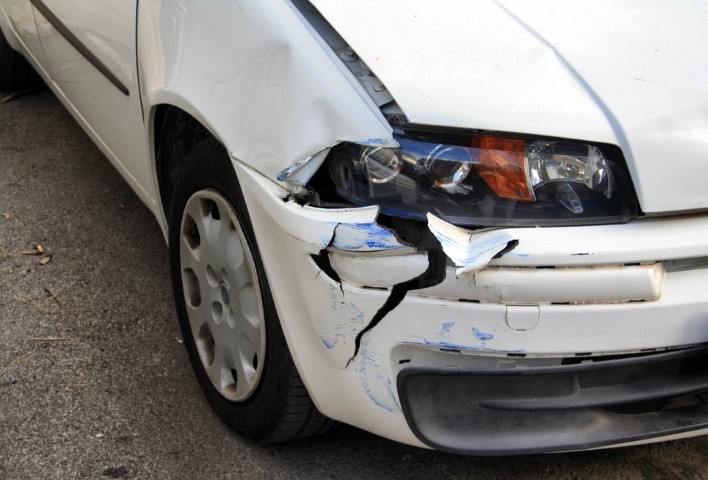 The role of a personal injury lawyer in a personal injury suit depends on who he is representing. If he’s representing the plaintiff, or the person alleging damage, his role is more than just answering counter-allegations. He needs to establish the case of his client. On the other hand, if the personal injury lawyer is commissioned by the defendant, the former must quash all the plaintiff’s evidence to refute the latter’s guilt.
The role of a personal injury lawyer in a personal injury suit depends on who he is representing. If he’s representing the plaintiff, or the person alleging damage, his role is more than just answering counter-allegations. He needs to establish the case of his client. On the other hand, if the personal injury lawyer is commissioned by the defendant, the former must quash all the plaintiff’s evidence to refute the latter’s guilt.
If there’s an accident, the plaintiff is the one who has the burden of proving that the respondent caused an injury that is tantamount to damage on his part. Since this is a civil case, the quantum of evidence required to indict the party causing damage is only by ‘preponderance of the evidence.’ Unlike criminal cases, civil cases have a lower standard of proof needed to rule that the other party is guilty. However, this does not mean that a mere allegation without substance will pass scrutiny based on the rules of evidence.
Lawyering for the plaintiff
To allow you to appreciate the role of personal injury accident attorneys in personal injury cases, let’s take a simple car accident as an example. ‘A’, a pedestrian flagged a cab to take her home. The mere act of hailing a taxi is the start of a contract of carriage between the passenger and the cab driver. The moment the latter stops and allows ‘A’ on board, he agrees to the ‘contract’ initiated by A. Here, the ‘meeting of the mind’ happens, with the agreement of taking A home safely as the ‘object’ of the contract. The ‘consideration’ in the said agreement is the fee A pays the cab driver upon the consummation of their deal.
When the said cab figures in an accident along the way, by negligence or deliberate intent to cause harm, the contract is violated. In this case, the passenger (A) can demand the cancellation of the contract of carriage. That means she can choose not to pay the cab driver since she was not brought home safely. If the driver forces A to pay, he can be made liable according to the rules on torts and damages. Furthermore, if A got hurt and suffered physical injuries because of the said accident, she can file a case for damages against the cab driver.
Why? Simply because in transportation law, the diligence required from the person driving any mode of transportation is ‘extraordinary.’ Meaning to say, he needs to have reasonable foresight to avoid any accident or injury while traversing the highway. Such diligence further requires him to regularly check his vehicle’s condition, keep it safe for the passengers, run regular check-ups on it, and make sure that he is agile enough to prevent any accident along the way.
If you’re the passenger in this case and intend to file a civil suit for personal injury against the cab driver, your lawyer will establish that all elements of negligence are present. Since the failure to observe extraordinary diligence is the crux of the claim for damages here, the lawyer must show that the driver failed to check his car regularly and that the latter was remiss of his obligation to secure his passenger’s safety.
Showing negligence is only half of the battle. Your lawyer must also show that such oversight is tantamount to a breach of a legal duty. Under the principle of ‘damnum absque injuria,’ it’s impossible to recover damages from the respondent if you can’t establish that the injury you suffered is a result of the other party’s breach of his obligations. This is where the previous contract of carriage becomes material. Because both parties agreed, both have duties to perform towards each other. Your lawyer has to prove the existence of such a contract as well.
Lawyering for the respondent
If you’re the respondent in the case, your lawyer’s role is to refute all the allegations of the plaintiff, with particular emphasis on two points — that there is no negligence on your part, or if there is, that such negligence is not out of remission of a legal duty. Since the other party has the burden of proof, your lawyer can strengthen your case by targeting those proofs and presenting more substantial evidence to the contrary.
Going back to the example in the preceding paragraphs, your lawyer, in this case, can argue that there was no contract between both parties, thus negating the need to comply with a legal duty on your party. Your lawyer can also assert that you have performed the degree of diligence required in the circumstance or that Force Majeure caused the accident. Your intent to cause harm should be refuted as well.
You see, whether you’re the plaintiff or respondent in a personal injury case, you need the expertise and skill of a seasoned lawyer. When your liberty is at stake, it’s best to trust the experts.










